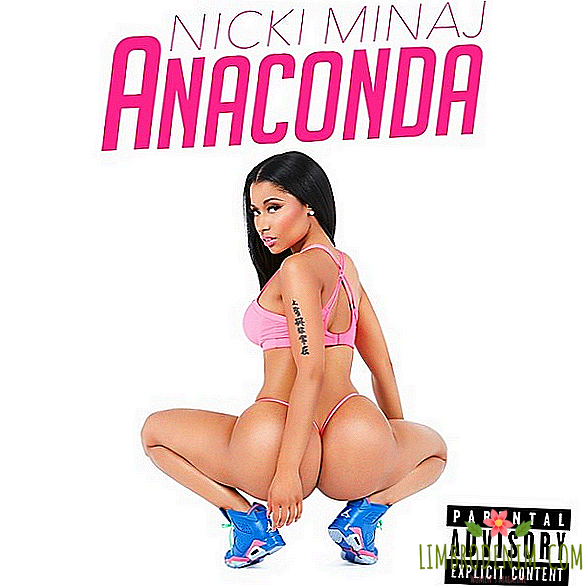The head of "Yandex.Transport" Liza Semyanovskaya about favorite books
IN BACKGROUND "BOOK SHELF" we ask journalists, writers, scholars, curators, and other heroines about their literary preferences and publications, which occupy an important place in their bookcase. Today, the leader of the Yandex.Transport service Liza Semyanovskaya shares her stories about favorite books.

 My mother read all the time, so the first thing to thank for the habit of reading is her. For example, we always had lunch together, but as soon as we sat down at the table, we immediately put the books in front of us. Years later, I already learned that reading lying is bad, reading at food is bad from the point of view of awareness, and in general it is better to read only sitting at the table and in good light. The only thing that I feel about this is that it is some kind of nonsense, and you can and need to read whenever and wherever you want.
My mother read all the time, so the first thing to thank for the habit of reading is her. For example, we always had lunch together, but as soon as we sat down at the table, we immediately put the books in front of us. Years later, I already learned that reading lying is bad, reading at food is bad from the point of view of awareness, and in general it is better to read only sitting at the table and in good light. The only thing that I feel about this is that it is some kind of nonsense, and you can and need to read whenever and wherever you want.
When I was very young, my mother read me out loud: Milna, Lindgren, "Alice in Wonderland." I demanded reading all the time, so at some point she was very tired of doing this and gave me a book with words in the spirit of "learn yourself". I learned and started reading everything I found. In the cool biographies of great people, young geniuses in this situation find Aristotle, Horace, and Kant, and I avidly read the series “Children's Detective” and was ready to kill for every new book. Then I switched to the deposits of the series “Female Detective”, and it started: Tatyana Polyakova, Victoria Platova, I even read two dozen books by Darya Dontsova. Probably, if I had caught Aristotle, then I would have tried it, because I was omnivorous. Sydney Sheldon, Myths and Legends of Ancient Greece, Tolkien, Mary Poppins, Peppy Longstocking, Conan Doyle, Gone With the Wind, Avanta + Encyclopedias, Kir Bulychev, One Hundred Years of Solitude, Master and Margarita, "The Catcher in the Rye", "To Kill a Mockingbird" - I read all this mixed up in no particular order. I remember that I also constantly read on the sly: for example, in the sixth grade I put a physics textbook on top of a book and read, gradually moving the book under the textbook - line by line. If my mother came into the room, I could quickly return the textbook to its place.
The set of books that I read as a teenager is very similar to what my friends were reading at the time. When I was 15-16 years old, the first consciously chosen authors were Murakami, Pelevin, Nabokov, Kundera and Pavic. It began when I bought the Chronicles of the Clockwork Birds by Murakami before the trip to the sea: it was thick and with a cool cover. I seemed to myself a terrible intellectual and tried to lie on the reserved seat so that the maximum number of fellow travelers could see the cover of the book. I still love Murakami terribly because I read him on long boring journeys, in the hospital, during unresponsive lovers - and it always became easier for me. I swallowed everything he had: both at home and in class, putting the book on his knees and closing the teacher off with his fringe, pretending that I was writing, bending over the notebook. And, and, of course, once I began to read Brodsky — these were the first poems I fell in love with. I knew a lot by heart, bought up all the collections I found, and even wrote my graduation essay on the external subject in his Christmas poems.
Then, from the age of 15 to 19, I began to read more consciously and read as much as never before. All the warmest memories of the books I have from this period of life. Then the books captured me much more than they do now, and I very much miss the feeling that now somehow disappeared. In the last courses I began to work a lot, so there was not enough time for reading. I began to choose books more carefully so that I managed to avoid passing ones. Then I fell in love with southern Gothic - the first time I read Faulkner's Noise and Fury, and then for several months I could not recover. Perhaps this is generally still the main feature book for me. There was only one person who greatly influenced what I was reading, and some of the books on my list are his recommendations. In the magistracy, we had an incredible teacher, Peter Ryabov, who taught us a course on philosophical anarchism and existentialism. I don’t remember a single person from the university with such warmth as his.
Since I became interested in feminism, my relations with world literature as a whole have deteriorated badly, and this is very difficult and sad. 9 out of 10 books, in principle, are permeated with patriarchy, and there's nothing to be done about it, so I am constantly frustrated. It is especially difficult to return to the books that I loved as a teenager, and to understand that all of them, with rare exceptions, were written by men about men and for men.
The most important perehvalenny author for me is Ayn Rand. I am terribly sad that everything seems to be crazy about her. I honestly read "Atlas Shrugged": the heroes there speak with remarks that take several pages, so it does not leave the feeling that you are reading the manifesto. And I don’t like this manifesto, because the whole idea is not close to me that a person is a master of the world, and the more intelligent, stronger and more talented he is, the more authoritarian can he afford to be. For my attitude I am most obliged, probably, to all the main existentialist children: Camus, Sartre, Kierkegaard. It is ridiculous that I am very sick of post-structuralism and postmodernism, but my heart is completely given to existentialism.
I used to adore fiction and sincerely did not understand people who do not read it. Now I began to pay much more attention to non-fiction. I remember a few years ago I did not long fall in love with a man who did not read fiction at all - he said that life was much more interesting for him. It seems that I am moving quietly somewhere in the same direction. But I specifically make an effort not to throw art.
Now I read very little. But if something very exciting comes up, then I do it all the time and everywhere: on the go, at work (I can hide between meetings in an inconspicuous corner and read there for about fifteen minutes), before going to bed, having a meal. The main thing is that for five years I have been keeping a list of all the books I have read - this is very cool and convenient. Firstly, I can return to it if I want to advise something to someone, and secondly, I use it as a diary. Books are associated with a lot of memories, and I like to treat this list as an album with photos.

Karen Horney
"The neurotic personality of our time"
I love psychotherapy and believe in it. For three years now I have been going to my wonderful psychotherapist once a week, and this has a very cool effect on how I feel. When I began to read this book, I was in a very difficult relationship, and I quickly became worse from the book. Nevertheless, I have been remembering her regularly for several years: it seems that in general she helped me a lot. If you describe it in one phrase, then this is a book about anxiety. It has become another small contribution to the fact that I am less and less worried when she comes, and I can watch her better and better from the side. In addition, Karen Horney is one of those who invented neofreidism. For example, she refutes Freud's nightmarish sexism - his idea that women are jealous of men, because those have a penis. Horney says that social differences and differences in upbringing influence the personality formation much more than biology - including differences between the sexes. And her idea that men envy women, because those have a womb and they can have children, it seems to me an excellent trolling.
Lao Tzu
"Tao Te Ching"
I am very sorry that most people believe that philosophy is a sort of distress from life. There is a darkness of books from the list of references to the basic course of philosophy, which are very cool. For example, this one. This is the main treatise on Taoism, it is many thousands of years old, and, as usual, no one knows who actually wrote it. It is also written in some strange version of the Chinese language, so the translations are dark, and it’s cool to read everything and in parallel. The first time I took her to the exam and remembered that I would need to return. A couple of years ago I found several translations and read everything. Tao Te Ching is a collection of aphorisms the way it should be. Well, in general, Taoism - this is very cool. He is about kindness, acceptance, non-resistance and love.
Irwin Yalom
"Existential psychotherapy"
Irwin Yalom is usually known for his popular psychology books with journal names: for example, "Schopenhauer as a medicine" or "When Nietzsche cried." First, these books are interesting and cool. Secondly, it is very important to popularize the work of psychologists, and Yalom puts a lot of effort into this. In addition, he has great academic work - just "Existential psychotherapy." With my love for existentialism and psychotherapy, do not come up with a book better. I found it in the literature list of a course at the Gestalt Institute and read along with other books from this list. It has four main parts: about death, freedom, loneliness and meaninglessness of life. Yalom believes that all causes of suffering are that a person has to constantly live with the feeling that, firstly, he is mortal, secondly, one is responsible for himself, thirdly, he will never understand how it is to be different man, and, fourthly, has no task "from above". On each page I wanted to shout "yes!" Three times. and hug the author.
Peter Kropotkin
"Notes of the Revolutionary"
This is a book from the list of references on philosophical anarchism. Kropotkin is very kind and cheerful: in addition to being a revolutionary, he is also a geologist, geographer and biologist. I love his autobiography for everything, but especially for one story. He went on an expedition to Manchuria with guides. At some point, an official stopped them at the border and asked them to show them the documents. They showed their passports, but this was not enough for the official - these papers did not make any impression on him. Then Kropotkin, in a tent, sought out the Moskovskie Vedomosti newspaper with the emblem of the Russian Empire on the front page and said that this was his passport. They were reverently missed. Besides the fact that this book is really funny, it is very kind and humane - I want everyone to read it.
Fedor Swarovsky
"Time Travelers"
Swarovsky is my favorite modern poet. He writes crazy poems about robots, space travel and the future, from which I always want to cry, because they are very touching, warm and humane. I love all his poems, and it so happened that I have two compilations "Time Travelers". I bought one myself, and the second I brought a friend to the hospital when I was lying with sick kidneys and a wild temperature somewhere on the edge of Moscow. In addition to the poems, this book has many photos of our everyday life - companies on shish-kebabs, families in parks, friends who swim in the pond - and all of these photos have captions from the future chronicles, something like "Pilot of the spacecraft No. 3645-2 Igor after the war, 2436 year. "
Didier Eribon
"Michel Foucault" (series ZZZL)
According to Michel Foucault, I wrote a diploma, and then I started writing my dissertation in graduate school, which, thank God, I quit. Foucault is a real rock star among philosophers. Eribona's biography is cool because you can read it alone in order to understand in general why Foucault is outstanding and why everyone has been crazy about him for several decades now. It was after this book that I really fell in love with Foucault — he finally became lively and convex for me. Foucault is one of my main role models, because he combined a lot of tough things as a professional and how, God forgive me, my personality. He dealt with the rights of prisoners, psychiatric patients and homosexuals, worked 12 hours every day (read lectures and wrote), once bought a cadillac and smashed him drunk on the way from the party, lived with his partner for many years and left with him in Tunisia, having missed the entire revolutionary building of 1968 in France, wore a corduroy suit and turtlenecks under his throat. If it did not exist, then LGBT-studies, perhaps, would not exist either.
Hannah arendt
"Eichmann in Jerusalem: Report on the Banality of Evil"
When Israeli intelligence sought out Adolf Eichmann and began judging in Jerusalem in 1961, Hannah Arendt was present at the hearing - she wrote reports in The New Yorker. Then from these reports came the book "The Banality of Evil. Eichmann in Jerusalem." Not the latest version has been translated into Russian, but the main title and subtitle are completely confused, so it’s better to read English. This book is that to create a super evil, you do not need to be a supervillain - just a system that normalizes the villains, and a high position in it. Eichmann, who organized the massacres, was not a psychopath or a sadist, he just did his job well. Hannah Arendt is generally very important, she perfectly explains totalitarianism.
Erich Fromm
"Anatomy of human destructiveness"
We were asked to read this book in political science in the third year, I could not take it for a long time, and then I finally started and could not tear myself away. It seems that was all I read from that list of references. We usually know Fromm "To have or be", "Man for himself" and "Escape from freedom." "The anatomy of human destructiveness" is not similar to them - it is such a weighty brick about human aggression. First, Fromm examines (in a rather derogatory tone) his predecessors (Lorentz and Skinner) and then methodically examines all aspects of human aggression - with a steep insight into anthropology and history. Well, and finishes a detailed analysis of the personality of Hitler.
Charles Bukowski
"What Matters Are You Going Through The Fire"
A few years ago I started reading a lot of blogs in Tumblr and constantly ran into quotes from Bukowski’s poems. For some reason, only prose is translated into Russian from Bukowski, although as a poet I like it much more. Well, after the quotes in the toggle switch, I bought one collection in Kindle on Amazon. But reading the poems from the iPad is wrong, so during a trip to the States I went to the bookstore and bought three paper books at once. One gave a friend, two left myself. In one of them, I already found a note at home, "I think you have beautiful hands <3", for which I love her even more. Poems in Bukowski terrible, terrible, terribly sad - about loneliness and love. In principle, you can take any of his collection and start reading from any place - most likely it will be cool. This is also the case when I can’t be mad at him for his frantic sexism, because the poems are too good.
Ursula Le Guin
"Left Hand of Darkness"
Ursula Le Guin, however, with another book, was on the list for the anarchism exam (I love how it sounds). I read The Obese, and then all the other books from the Hein cycle. On each planet in the books of this cycle, some kind of a kind of social structure. In "Disadvantaged" all opposition-minded citizens are sent to a separate planet (the main satellite), and they are building a cool anarchism there. In the "Left Hand of Darkness" people do not have a specific gender or gender. At the time when you need to find a partner for the birth of children, the inhabitants of the planet find a mate, and then in a pair each acquires temporary signs of the necessary sex. Children are all brought up together, so after the birth of a child, the partners again become gender neutral. In general, Ursula Le Guin wrote about the floating identity before it was cool. I always advise this book (and the rest of the Hein cycle) to everyone, because I think that Le Guin is insanely undervalued.




